i don't trust people who don't return their shopping carts—and neither should you
how a stupid little cart can out your entire personality
Sometimes I catch myself watching a cart drift through a parking lot like a suburban tumbleweed and I feel a bit ridiculous. Here I am, a grown person, constructing elaborate philosophical frameworks around grocery store logistics. But then I remember Sartre’s claim that we are condemned to be free—forced to choose even when we’d rather not think about it. The shopping cart makes that abstract principle suddenly, almost painfully concrete. There you are, cart handle in hand, forced to define yourself through action whether you want to or not.
The shopping cart is one of the simplest technologies in modern life—a steel basket on four wheels. But it’s also become one of the purest mirrors of human nature. There’s no law requiring you to return it. No fine, no police officer waiting at the corral. You are free to leave it stranded in the parking lot, blocking a space, soaring into someone else’s bumper. And yet, many people don’t. But some do. And inside that tiny decision—whether you guide it back to its place or not—is a whole philosophy of free will, order, and civic trust.
The internet has enshrined this in what’s called the “shopping cart theory.” The meme goes like this: if you can’t even be trusted to return your cart, you probably can’t be trusted with anything else.
It's become one of those ideas that spreads because it feels uncomfortably accurate. We’ve all seen it—the orphaned cart jammed diagonally across a spot, tipped into a ditch, rolling into someone else’s car. And we’ve all had the same instinctive thought: this tells us something about whoever left it here.
Because the act of not returning your cart isn’t just laziness. It’s a declaration: my convenience matters more than the shared order of this space.
It says:
I assume someone else will absorb my slack.
I believe rules only apply when enforced.
I don’t see myself as part of a system, only as an individual optimizing for me.
The shopping cart is simply the clearest, most stripped-down test case—a moral choice without punishment, without reward, without witness. Which is why returning it, small as it is, signals something much larger: a willingness to cooperate even when you don’t have to.
And that’s exactly why I don’t trust you if that’s who you are: because the world runs on invisible agreements. On trust extended without proof. On the assumption that most people will carry their small weight without being watched. If you can’t be trusted with a cart, why should I trust you with anything larger—an obligation, a relationship, a vote, a child, a position of power?
Of course, there are exceptions. The parent wrangling three toddlers in the rain. The elderly person whose joints ache just to walk across the lot. The shopper caught in a medical emergency. But these moments don’t dissolve the principle—they reinforce it. Because they reveal a second layer: the burden can shift. The moral act is no longer the parent struggling to return the cart, it’s the passerby who sees the struggle and offers, “I’ll take that for you.”
That’s the essence of civic trust: not rules, but reciprocity. The willingness to carry the cart for someone else when they can’t, because one day you might need someone to do the same for you. But the ethic remains: someone carries the cart back, not because they’re forced to, but because order depends on someone choosing to.
For the other 99.9% of us, though, the math is simple. If you were capable enough to get a cart, load it with groceries, and push it through a store, you are capable enough to put it back where it belongs.
Kant would see it as a perfect expression of his categorical imperative: act only according to the maxim you wish to be universal law. If everyone abandoned their cart, the parking lot would collapse into chaos. Therefore, the rational choice—the moral choice—is to return it.
Sartre would push further. For him, every action, no matter how small, is an assertion of freedom. To return the cart is to say: I choose order. I choose responsibility. To leave it is to say: I choose indifference. I choose convenience over coherence. In existentialism, there is no hiding behind excuses. Even in a Target parking lot, you are announcing yourself to the universe.
Nietzsche, for his part, would see the cart as training. His philosophy was one of self-overcoming, of sharpening the will through discipline. To him, the smallest act of self-command was practice for greatness. He would not only return the cart, he would probably return several others with flourish—laughing at those who thought themselves above the task. For Nietzsche, the cart would be an opportunity to demonstrate style in even the most mundane gesture.
Through these lenses, the cart becomes not just an errand, but a referendum on who you are—and whether you are someone who can be trusted.
Take a step back, and the shopping cart is also systems theory made visible. Parking lots are not just slabs of asphalt—they are microcosms of society. Shared resources, limited space, voluntary cooperation. If everyone returns their carts, the system functions seamlessly. If even a fraction stop, entropy sets in: carts block spaces, roll into cars, force employees to waste time corralling them instead of stocking shelves. The cost of one person’s convenience is multiplied across the collective.
This is the tragedy of the commons in miniature. Each individual thinks their cart doesn’t matter. But when enough people think that way, the system breaks down.
It’s also a test of civic trust. Civilization depends on small, unglamorous duties carried out without coercion: recycling, paying taxes, voting, stopping at red lights when the street is empty. The shopping cart is the smallest scale at which this principle plays out: too small to matter individually, too large to ignore collectively.
Look closely at a parking lot and you’ll see more than commerce. You’ll see the invisible architecture of cooperation. Each returned cart is a vote for order. Each abandoned cart is a withdrawal.
Returning the cart is about more than morality or efficiency. It’s also about aesthetics. A loop closed. A gesture completed. A small refusal of chaos. It’s about trust. It’s proof you can be counted on to do the right thing when no one is watching, when nothing is at stake, when it would be easier not to. The cart becomes this perfect mirror, reflecting back not just individual character but our capacity for care, our willingness to participate in the quiet maintenance of civilization.
The act says: this space belongs to all of us, and I will leave it whole.
Which is why, in the end, it really is that simple: if you can push a cart full of groceries through a store, you can push an empty one twenty feet back to its corral.
So no, I don’t trust people who don’t return their carts. Not because the cart matters, but because everything else does.
The cart remembers!
What other dumb little tests reveal way too much about a person??
XO, STEPF
MORE TO EXPLORE 🐆
25 ways to get UNSTUCK
There's a certain type of silence that descends when the creative current stops flowing. Not the generative silence of contemplation, but the hollow quiet of a system that has forgotten how to move. You sit before the canvas, the page, the screen—and find yourself in conversation with… absence.
the alchemy of a worldview
There's a somewhat startling moment in intellectual development when you realize that most of what you believe isn't actually yours. The political positions, moral frameworks, aesthetic preferences, …
15 unglamorous rituals that keep me sane
I've been thinking about the word "ritual" lately, how it carries this weight of ceremony and meaning that feels almost embarrassing to apply to something as mundane as going for a walk or making sur…



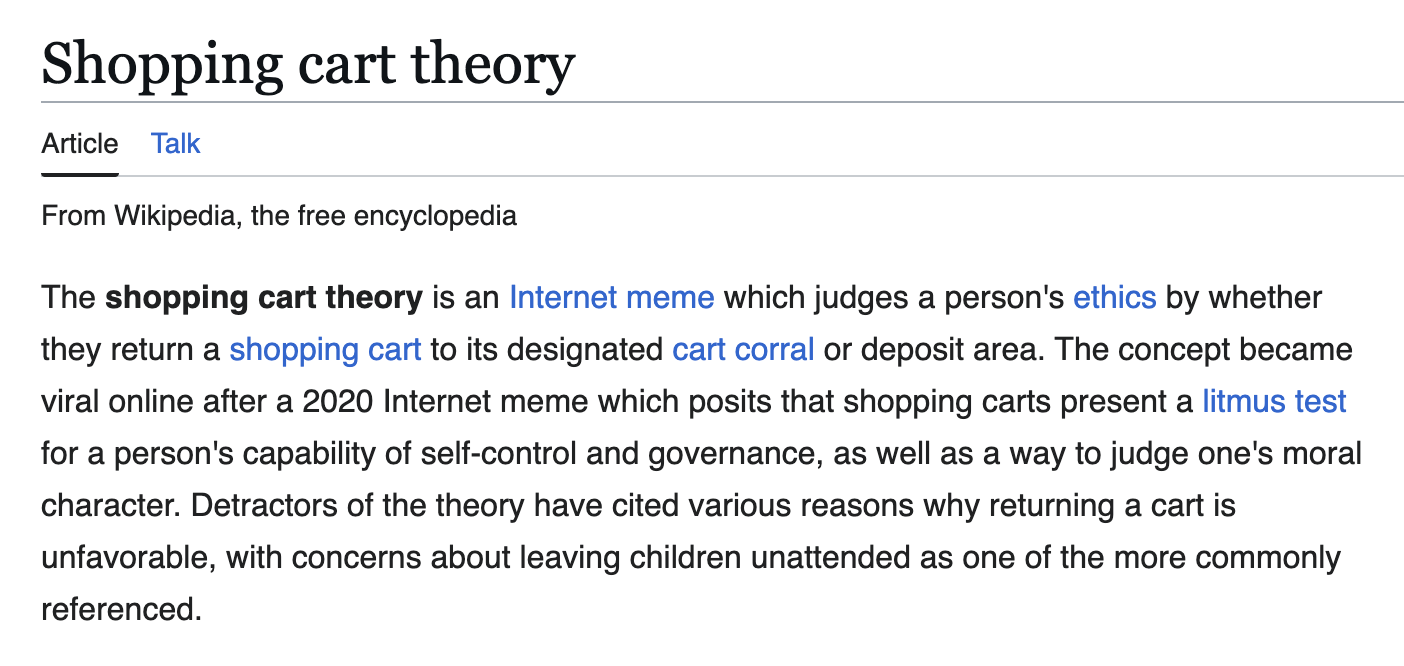
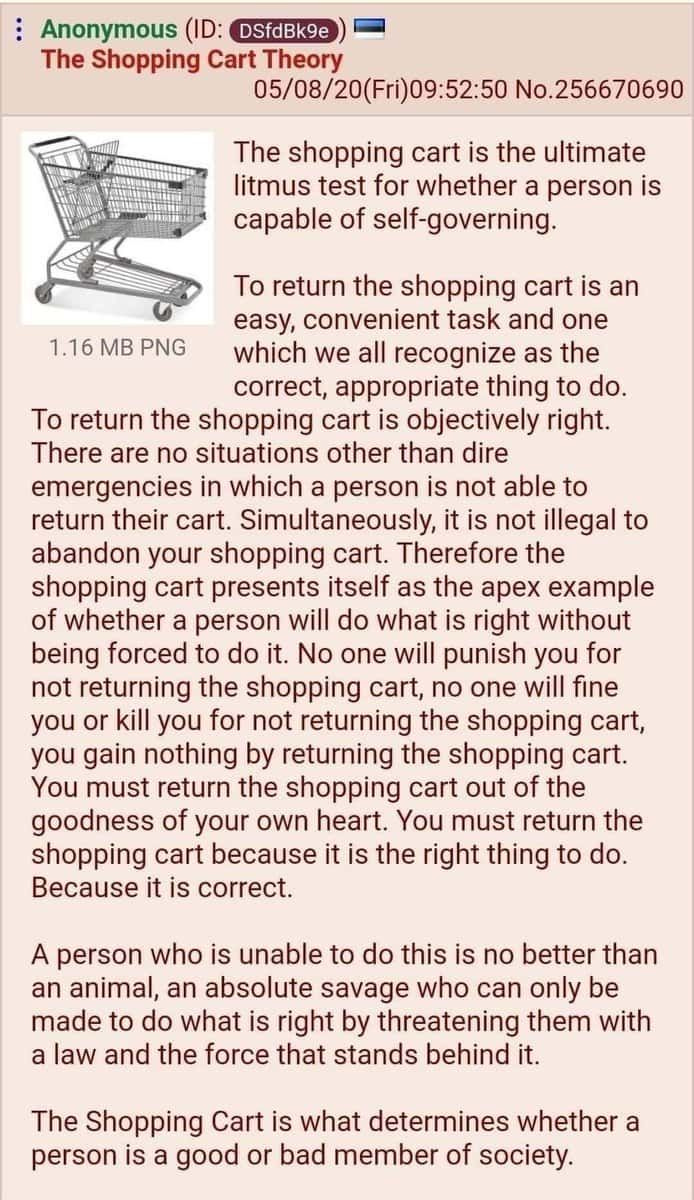
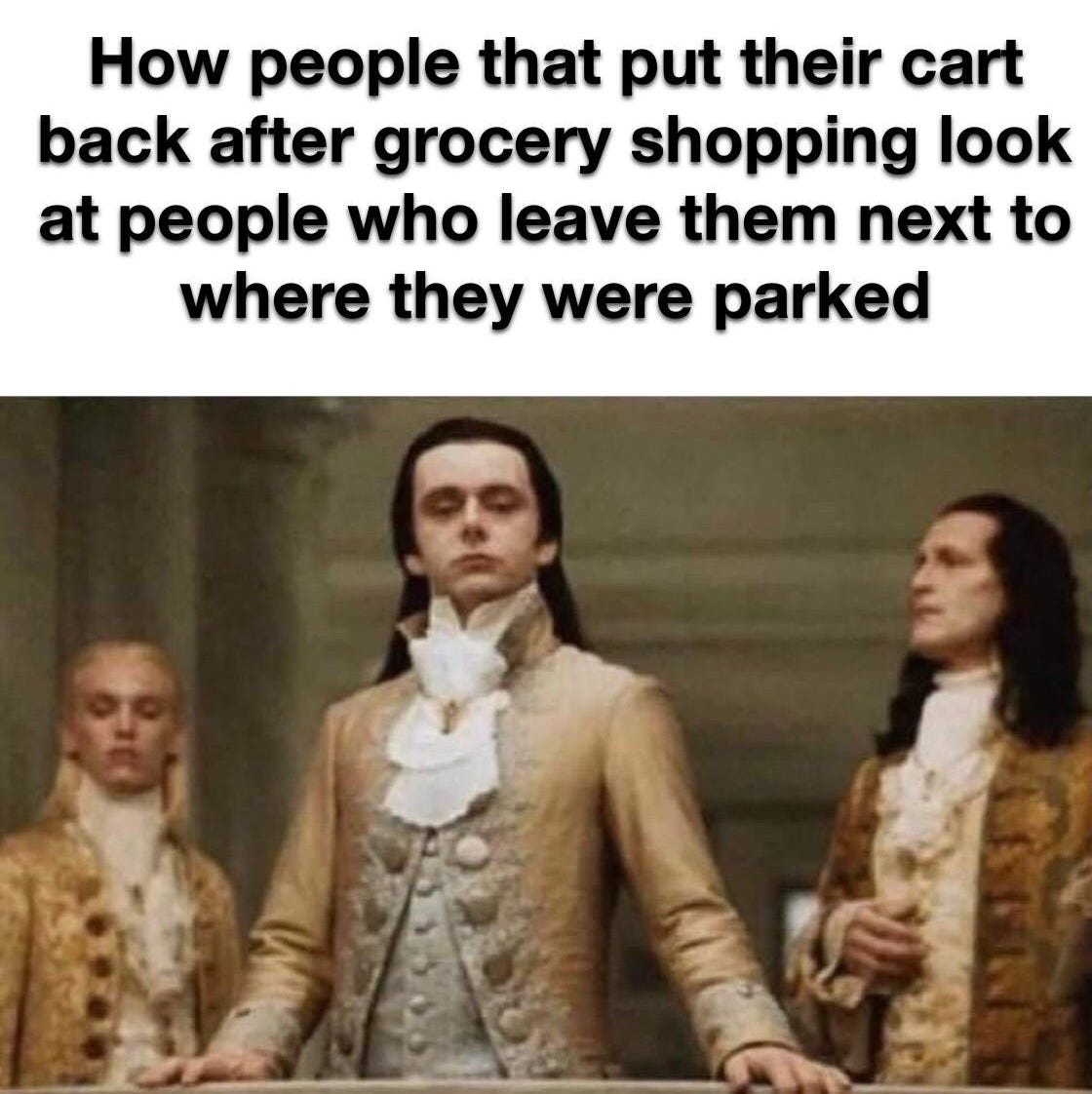
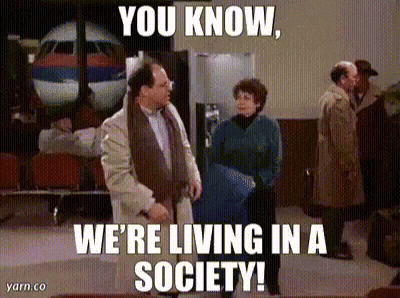
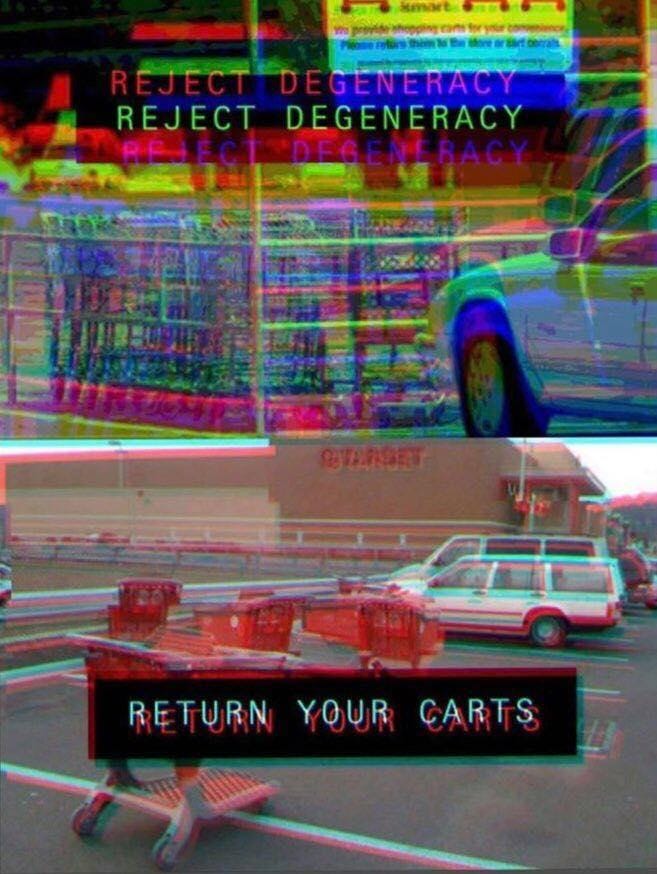





How about PUT YOUR WEIGHTS BACK AFTER YOU’RE DONE WITH THEM!
Never thought too deeply on my compulsion to return my cart and any others nearby, but “A small refusal of chaos” is probably the best way to sum it up.